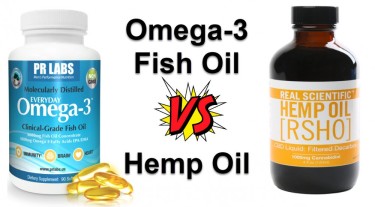Omega-3 fatty acids may hold the key to unlocking the maximum benefits of medicinal cannabis

There is so much to learn about how cannabis works in the human body.
The growing body of knowledge we have is constantly growing and evolving, unveiling new breakthroughs and insights into our endocannabinoid system, cannabis, as well as the many other things we consume on a regular basis. One of the most intriguing discoveries of recent times is how consuming omega-3 fatty acids enhances the therapeutic benefits of cannabinoids.
What is omega 3?
Omega-3 fatty acids are among the most important fats we need to consume.
There are 11 different types of it, with the main ones being DHA, EPA and ALA. DHA (docosahexaenoic acid) forms the structures found in the retina of your eye and in your skin. It is necessary for the proper development of the brain both in childhood and in adults. DHA deficiency has been linked to faster onset of Alzheimer’s disease and impaired brain function. Making sure you’re getting enough DHA helps with certain conditions like high blood pressure, arthritis, diabetes, and certain types of cancer.
EPA (eicosapentaenoic acid) is used by the body to produce eicosanoids, molecules that play important roles in reducing inflammation and promoting physiological health. The EPA supplement has helped women treat hot flashes.
Last but not least, ALA (alpha-linolenic acid), the most common type of omega-3 fatty acids. It is normally found in plants and is a precursor to DHA or EPA. Diets high in ALA have been linked to fewer heart disease deaths and protection from certain cancers.
These fatty acids are essential for maintaining many functions and improving overall health. Since the human body cannot produce its own omega-3 fatty acids, we have to get them from food. The best sources are oily fish (e.g. salmon and sardines), flaxseed oil, chia seeds, flaxseed and walnuts. However, taking omega-3 supplements is recommended for people who cannot get these foods through their diet.
How Omega-3 works with the endocannabinoid system
Recent research shows that when we consume adequate amounts of omega-3 in our diet, it helps us to properly metabolize cannabinoids in the cannabis plant. In fact, omega-3 fatty acids may even help the body produce its own cannabinoids more efficiently, which is fantastic news for anyone looking to improve their own overall health or trying to cure an illness.
The endocannabinoid system is responsible for regulating many important functions, including stress response, inflammation, pain, hunger, energy, muscle control, and mood, among others. This is why when we have an endocannabinoid deficiency, we feel completely off balance. And the omega-3 fatty acids are extremely helpful in supporting these functions. Additionally, studies show that omega-3 fatty acids are converted into endocannabinoids in the human body, which helps people suffering from sleep and mood disorders, inflammation, pain, and more.
Our own endocannabinoid system feeds on omega-3 fatty acids, so they work very well together in the human body. The endocannabinoid system is much better regulated with adequate levels of omega-3 fatty acids in the body, allowing it to metabolize cannabidiol (CBD), tetrahydrocannabinol (THC) and all the many other valuable cannabinoids in the plant that help us , heal and stabilize our own systems. It’s also important to note that the active compounds in the cannabis plant are fat-soluble, which means they need fat to be properly metabolized (this is also why cannabinoids bind so well to fat when making edibles!) .
In addition, it has been found that omega-3 deficiencies are also linked to obesity, anxiety, and other conditions because the endocannabinoid system is also dysregulated. These deficiencies may also explain why people respond so well to CBD products and why so many of us feel so much better when consuming it as a dietary supplement.
So, consuming more omega-3 fatty acids helps make your cannabis consumption more efficient and helps it do its job even better.
Aditi Das, a professor at the University of Illinois specializing in biochemistry and comparative biosciences, led a study that delved deeper into how cannabinoids and endocannabinoids support the immune system. “Some cannabinoids like THC in marijuana or endocannabinoids can bind to these receptors and produce anti-inflammatory and analgesic effects,” Das said. “Our team discovered an enzymatic pathway that converts omega-3-derived endocannabinoids into more potent anti-inflammatory molecules that predominantly bind to receptors found in the immune system,” she explained. “This finding shows how omega-3 fatty acids can induce some of the same medicinal properties as marijuana, but without the psychotropic effects.”
Other benefits of consuming omega-3 include aiding in the repair and maintenance of cannabinoid receptors, aiding the body in efficiently synthesizing cannabinoids, and ensuring that the ratio of omega-3 and omega-6 fatty acids is optimal, which ensures healthy receptor membranes. It also helps convert one type of cannabinoid into another and regulates the endocannabinoid system by producing enzymes that help the body make more of these cannabinoids.
Get more omega fatty acids
If you’re looking to maximize your cannabis use and its healing properties, it’s in your best interest to consume more sources of omega-3 and omega-6 fatty acids. Aside from the aforementioned sources, healthy sources of eggs, fish, nuts, and meat are also excellent ways to increase your fatty acids, which the body then converts into endocannabinoids.
You may also consider taking fish oil supplements to get these nutrients if your current diet doesn’t allow you to get enough of these foods.
Not only does it help convert cannabinoids in your body, but omega-3 and omega-6 fatty acids also have their own powerful healing properties, especially when it comes to fighting inflammation and disease.
Research focuses primarily on specific types of omega-3 and omega-6 fats, namely DHA and EPA.
MORE ABOUT OMEGA-3 AND CANNABIS, READ THIS…

OMEGA-3 OIL OR HEMP OIL, WHICH IS BETTER FOR YOU?

Post a comment: